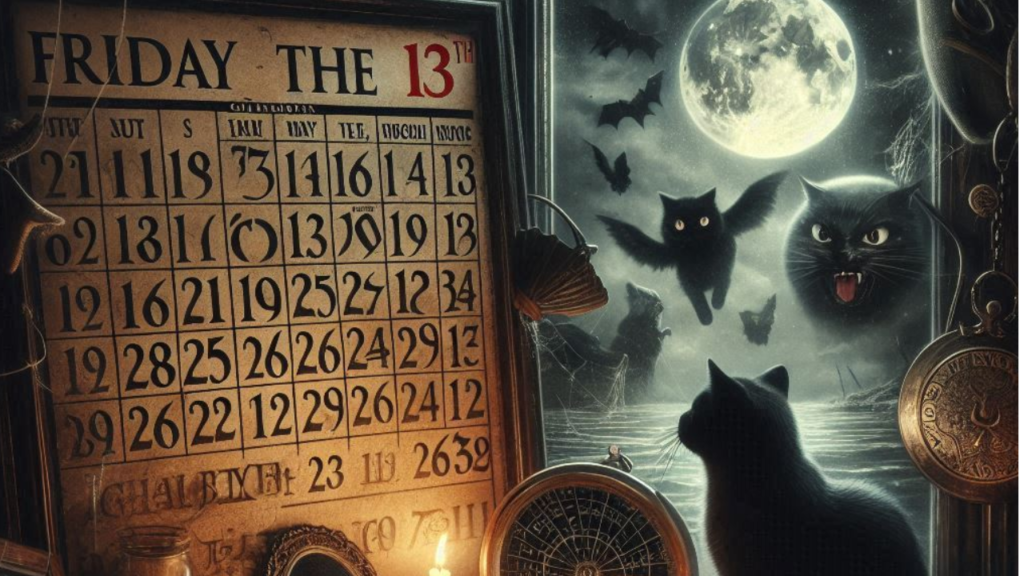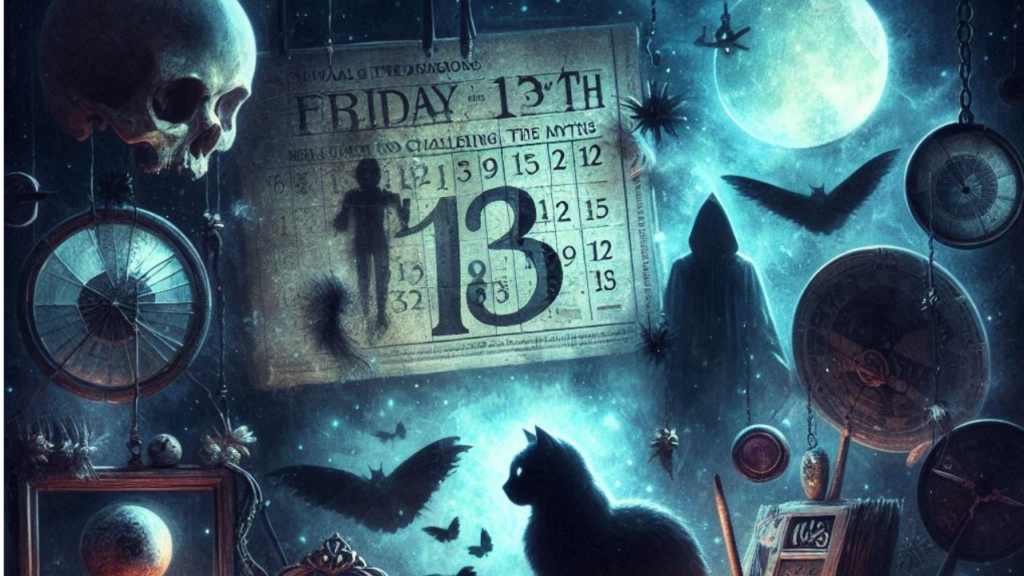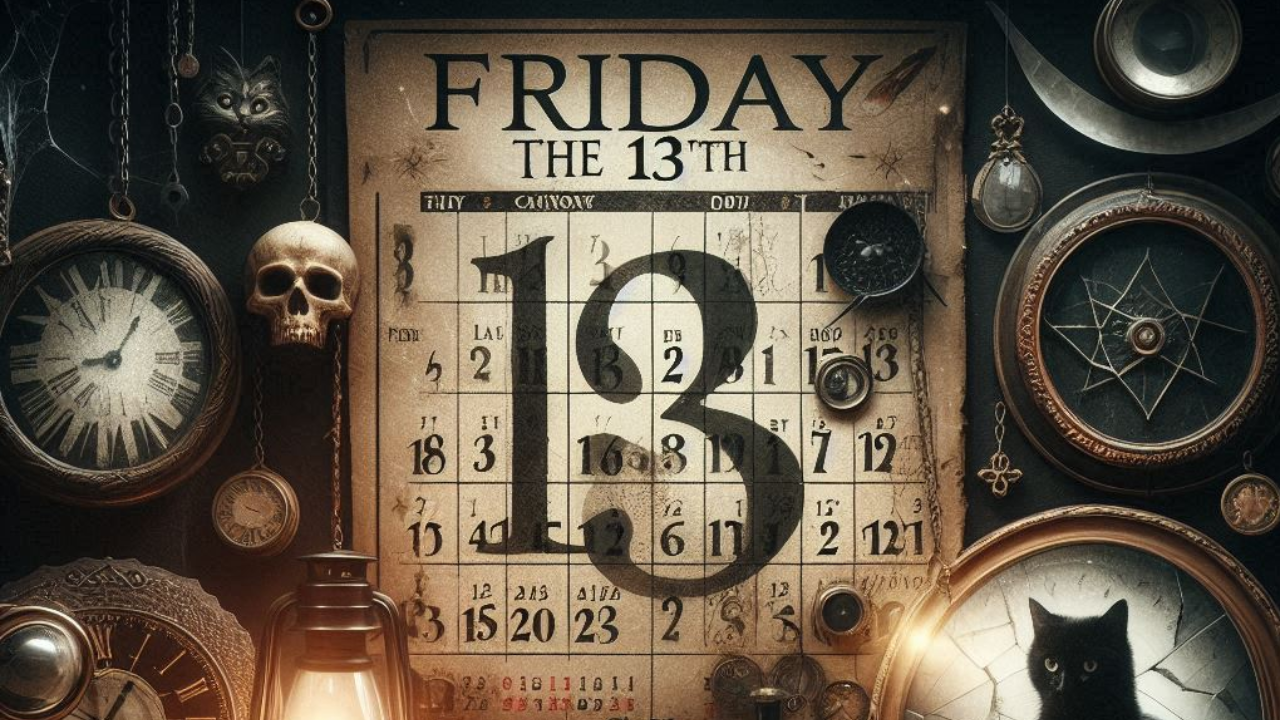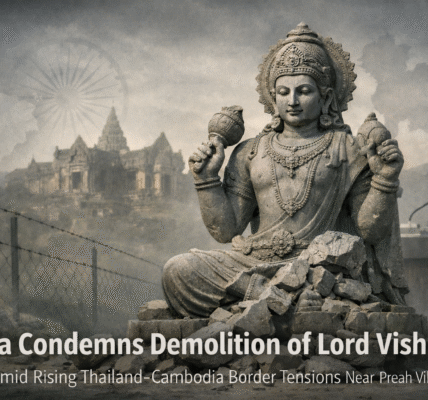Friday the 13th Superstitions: Unraveling the Origins and Challenging the Myths
Friday the 13th Superstitions: Unraveling the Mystery Behind the Unluckiest Day
As Defy Superstition Day approaches, it’s the perfect time to delve into one of the most enduring and widespread superstitions: the fear of Friday the 13th. This day, often shrouded in mystery and dread, has a rich history that intertwines cultural, religious, and historical threads. But how did this particular date come to be seen as a harbinger of bad luck, and is there any truth to these fears?
The Historical Roots of Friday the 13th Superstitions

The origins of Friday the 13th Superstitions as an unlucky day are multifaceted, with several theories contributing to its ominous reputation. One of the most cited explanations traces back to biblical times. According to Christian tradition, 13 guests attended the Last Supper, including Jesus and his 12 apostles. The next day, Good Friday marked Jesus’ crucifixion. This association with betrayal and death has long cast a shadow over the number 13.
Another historical theory points to the Knights Templar, a powerful medieval Christian military order. On Friday, October 13, 1307, King Philip IV of France ordered the arrest of hundreds of Templars, leading to their torture and execution. This event further cemented the day’s unlucky reputation.
In more recent history, the superstition was popularized by Thomas W. Lawson’s 1907 novel, “Friday, the Thirteenth,” which depicted a stockbroker exploiting the superstition to create chaos on Wall Street. This narrative helped embed the fear of Friday the 13th into the modern psyche.
Cultural and Psychological Underpinnings
The number 13 has long been considered unlucky in various cultures. In Western traditions, the number 12 is often seen as complete and perfect—think of the 12 months of the year, 12 zodiac signs, and 12 apostles. The number 13, by contrast, is viewed as irregular and unsettling.
Psychologically, the fear of the number 13 even has a name: triskaidekaphobia. This irrational fear can lead to real-world consequences, such as buildings skipping the 13th floor or airlines omitting row 13 from their seating plans.
Modern Perspectives and Defy Friday the 13th Superstitions Day

In today’s world, many people view superstitions with scepticism. Defy Friday the 13th Superstitions Day, celebrated on September 13, encourages individuals to challenge these old beliefs and embrace rational thinking. This day serves as a reminder that superstitions, while culturally significant, often lack factual basis.
Experts like Dr. Stuart Vyse, a psychologist specializing in superstition and irrational behaviour, argue that superstitions persist because they offer a sense of control in an unpredictable world. “People turn to superstitions in times of uncertainty,” says Dr. Vyse. “But understanding the origins and lack of evidence behind these beliefs can help us move past them.”
Anecdotes and Trivia
- The Thirteen Club: In the late 19th century, Captain William Fowler founded the Thirteen Club in New York to debunk the superstition. Members would dine on the 13th day of the month, sit 13 at a table, and even walk under ladders before their meals.
- Pop Culture Impact: The fear of Friday the 13th has been immortalized in the horror film franchise of the same name, further entrenching the superstition in popular culture.
Conclusion
As we observe Defy Friday the 13th Superstitions Day, it’s an opportunity to reflect on the origins of our beliefs and consider how they shape our actions. While the fear of Friday the 13th Superstitions may be deeply rooted in history and culture, modern perspectives challenge us to rethink these notions and embrace a more rational worldview. So, this September 13, why not walk under a ladder, break a mirror, or even host a dinner party with 13 guests? You might just find that luck is what you make of it.
More Articles
Rebel Ridge Review: A Must-Watch Netflix Crime Thriller Packed with Electrifying Action
GOAT Movie Review: Vijay Delivers a Thrilling Performance Ahead of His Political Debut
Babygirl Nicole Kidman Screening at Venice Film Fest: A Journey of Vulnerability and Resilience
IC 814 The Kandahar Hijack – Unveiling the True Story Behind India’s Most Notorious Hijacking
Saripodhaa Sanivaaram Review: A Gripping Action Drama Ignites Twitter with Rave Reactions
Victoria Monét Unveils Sensual New Single ‘SOS’ with Usher Collaboration
Ben Affleck and Jennifer Lopez Divorce: The End of a High-Profile Romance
Disney Reveals Captivating Teaser for Live-Action “Snow White” Starring Rachel Zegler and Gal Gadot
Hardik Pandya Divorce: Cricketer and Natasa Stankovic Announce Split After Four Years of Marriage
Tragic Loss: Travel Influencer Aanvi Kamdar Falls to Her Death in Gorge Accident
Supreme Court Upholds Maintenance Rights for Divorced Muslim Women Under Section 125 CrPC
Sena Leader’s Drunk Son Allegedly Driving BMW in Fatal Mumbai Accident: Sources
Rahul Gandhi: The Controversial Political Leader
Discover more from
Subscribe to get the latest posts sent to your email.











3 COMMENTS